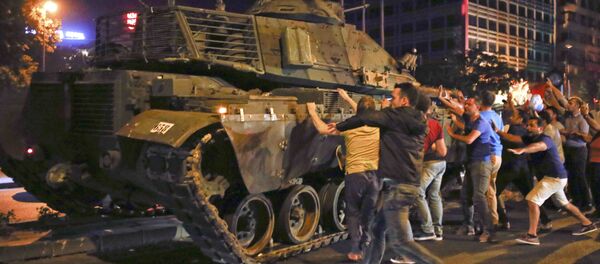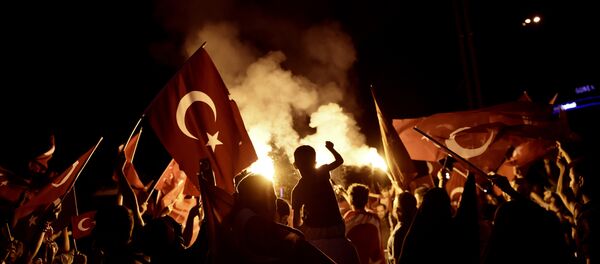The influential Atlantic Council led by President Obama’s former Ambassador to Singapore and failed 2012 Republican candidate Jon Huntsman released a paper calling for Poland to "reserve the right" to attack Russian infrastructure including Moscow’s public transportation system and the offices of RT and Sputnik via electronic warfare.
This information was not leaked by whistleblowers or by the latest WikiLeaks data dump nor were they a draft document that was later discarded after more reasonable minds analyzed the idea and shot it down. Instead, this call for cyberwar was instead posted brazenly in the light of day in an Atlantic Council piece titled "Arming for Deterrence: How Poland and NATO Should Counter a Resurgent Russia."
"Poland should announce that it reserves the right to deploy offensive cyber operations (and not necessarily in response just to cyberattacks). The authorities could also suggest potential targets, which could include the Moscow metro, the St. Petersburg power network, and Russian state-funded media outlets" such as RT and Sputnik.
Although the offensive use of cyber capabilities is hardly anything new, the use of an "offensive cyberattack" against a civilian target such as the Moscow Metro which carries over 10 million commuters daily and which has been the target of a number of deadly attacks is a reckless position that could result in tragic consequences.
Additionally, referencing St. Petersburg (formerly Leningrad) – the site of an 872-day military siege by the Nazi Army that left some 1.5 million civilians dead from starvation, disease, and conflict in response to anything but the most egregious assault is ludicrous. However, so is staging the largest military wargames ever on the Russian-Polish border led by German forces on the 75th anniversary of the Nazi invasion so you do have to commend the consistency of outrageous anti-Russian maneuvers.
Moreover, the assertions in the Atlantic Council publication are in gross violation of the Geneva Conventions Article 51(2) which states "The civilian population as such, as well as individual civilians, shall not be the object of attack. Acts or threats of violence, the primary purpose of which is to spread terror among the civilian population are prohibited."
Finally, the call to attack "Russian state-funded media outlets" such as RT and Sputnik also stand in stark contravention to international humanitarian law which views these "potential targets" as civilian installations that are strictly off-limits for any sort of attack. That is, of course, separate and apart from the dangers of censoring the free transmission of ideas and information from entering the marketplace of ideas, the limitation of which is itself an act of propaganda prohibiting discussion of unpleasant ideas.
It is clear that in the rush for an information Cold War against Moscow, perhaps first sparked by Hillary Clinton’s haphazard attempt to distort the reality exposed by WikiLeaks that she joined with mainstream media outlets and the DNC to rig the election against Bernie Sanders, has finally come to a most dangerous endpoint.






